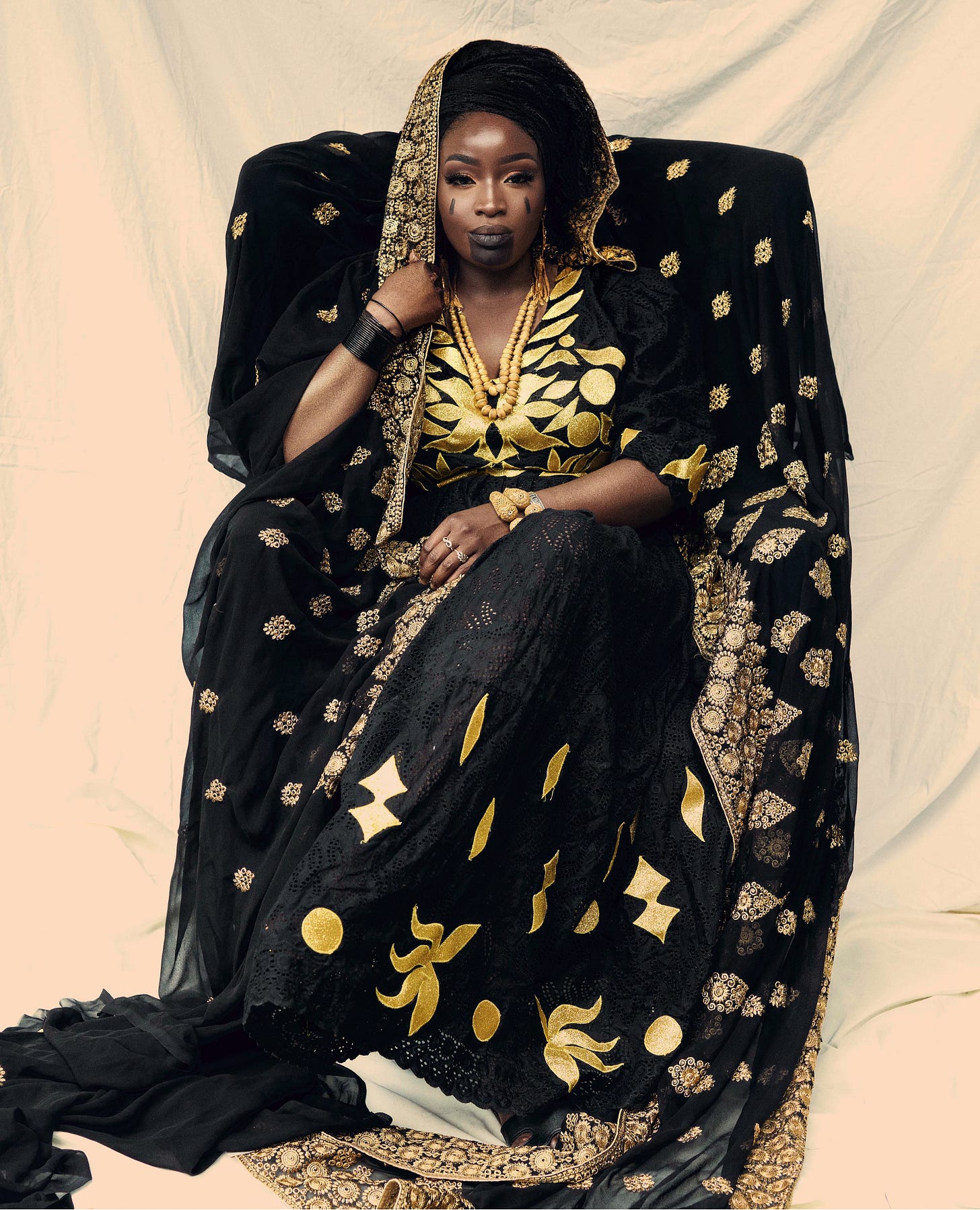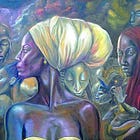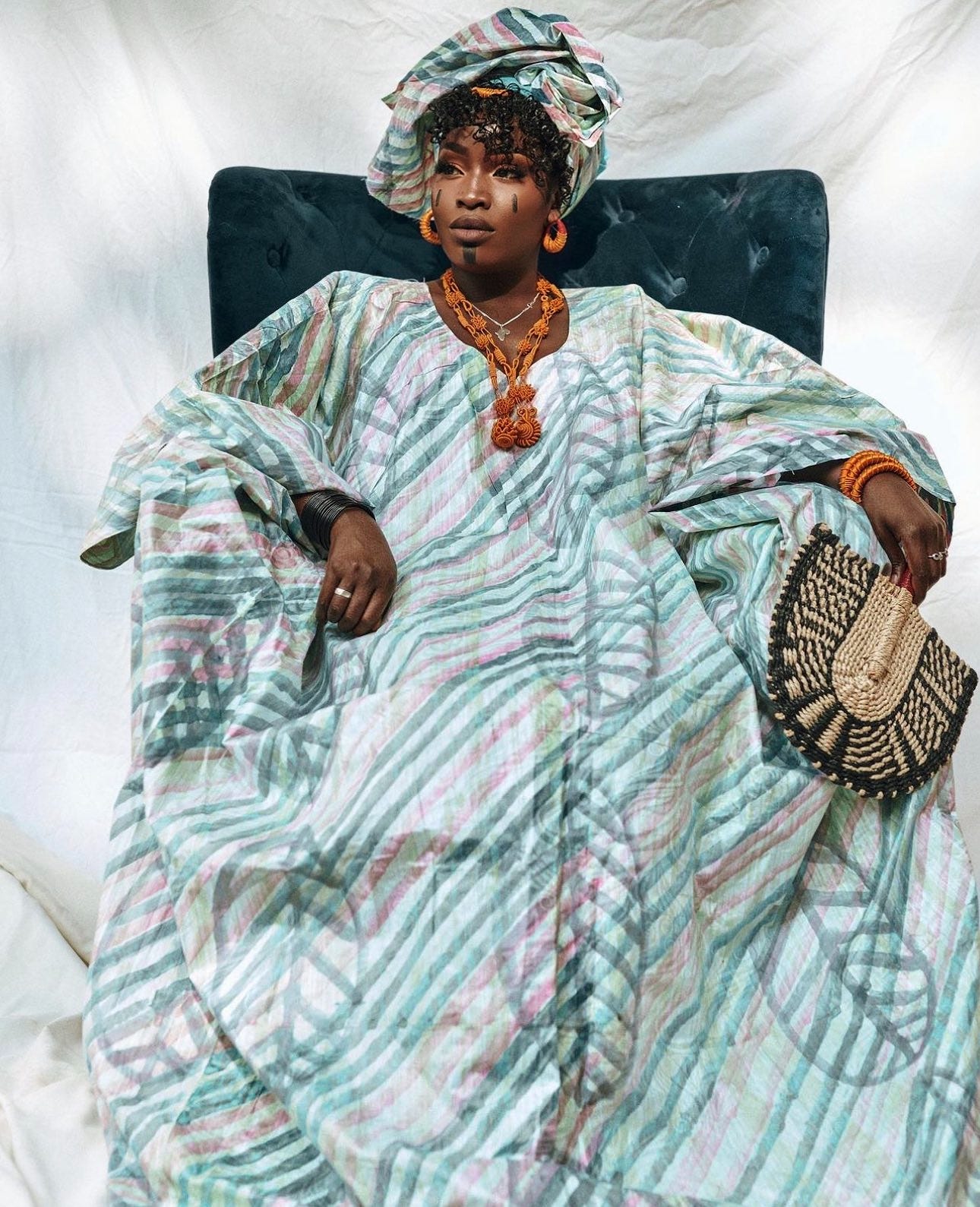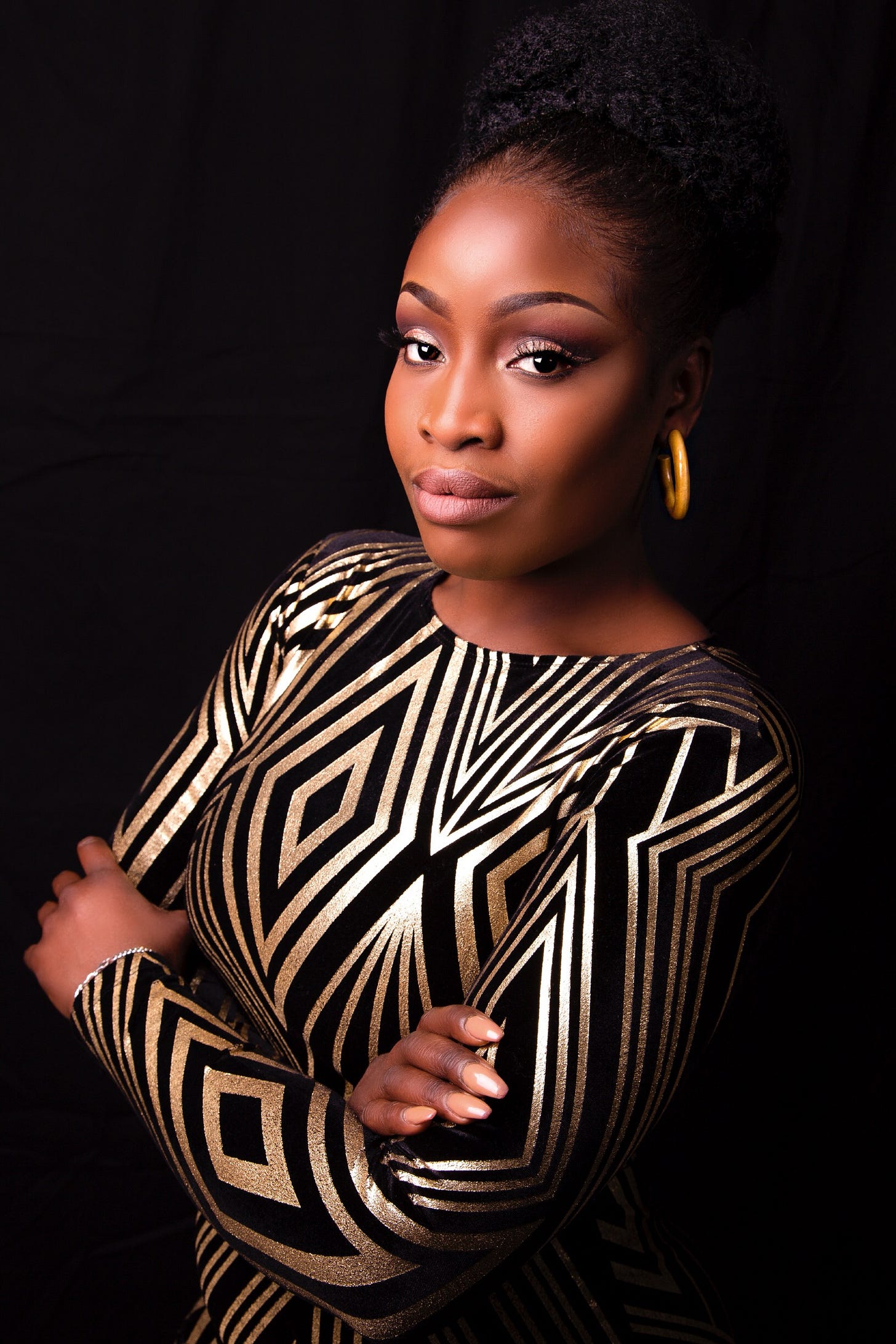When the West Says “Matriarchy,” I Pause

“You can’t recreate what you’ve never understood. The West has no matriarchal legacy to speak from.”
You think it means women ruling like men.
That’s not matriarchy. That’s patriarchy with rebranding. The West has no matriarchal legacy to speak from. You cannot recreate what you’ve never understood. And what the west doesn’t understand it colonises, extracts, distorts, or destroys. Then rebrands the narrative to frame itself the victor and saviour.
My people understood this when they first came in contact with westerners.
Raised Inside a Fulani Matriarchal Lineage: What I Inherited, Not Studied
I was raised in one of the last standing matriarchal structures in Africa. My lineage isn’t hypothetical. It’s intact.
I don’t speak about matriarchy from books or borrowed language. I speak it as someone raised in it—within Fulani systems where lineage was not just a bloodline, but a governance structure.
In my family, griots were not performers. They are historians. Educators. Memory-holders. Trained from birth to preserve what must not be lost—and to protect it from those who never understood its value. That includes colonialism, and yes, even well-meaning Western feminism.
My grandmother never used the word “matriarchy.” She lived it. She enacted it. She didn’t ask for theory to legitimize what her elders had already taught her to protect.
We bury and gatekeep our knowledge in nonverbal communication.
This is one reason I am deeply against ABA for Black children, children who are here to teach their parents how to listen and communicate in the ancient ways. To awaken in them ancestral methods the West cannot decode and never will.
But instead of learning from these children, Western systems force them through trauma just to speak in a single mode that can be understood by the coloniser’s standards.
I’ll explore that more another day. But know this: in our cultures, children are not sidelined. They are centered. And because they are centered, they are also our teachers.
Matriarchy Is Child-Centered and Therefore Neurodivergence-Centered
Western systems talk about children as “the future.” In ours, children were the center.
Not because of sentiment, but because their vulnerability mirrored those of the disabled and the neurodivergent. So when we protected children, we were also safeguarding autistic kin, schizophrenic elders, the soft-spoken, and the intense.
That wasn’t seen as fragility—it was seen as strategy. You want to know how we kept people alive across generations of trauma, displacement, and colonial disruption?
We centered care. That was the power. Not control. Not punishment. Not hierarchy. Interdependence.
Neurodivergence Existed in Africa Long Before the DSM
For the past three years, I’ve been researching, collating data, speaking with Fula, Mandinka, and Yoruba griots in my family line.
I’ve also been reading academic texts—often through gritted teeth—because I needed to see what colonial epistemology erased.
What I found wasn’t surprising, only confirming: ancient African societies didn’t view neurodivergent people as broken. They were often recognized early, trained, and assigned roles aligned with their strengths—not pathologized into silence.
They were:
Healers, who sensed what others couldn’t name.
Oral historians, griots, whose seemingly tangential memory was an archive.
Connectors, whose “distractibility” was actually perceptual breadth—reading a room before others even stepped into it.
Spiritual interlocutors, the ones who lived slightly askew from consensus reality and were treated as bridges, not burdens.
That wasn’t sentiment. It was infrastructure.
We didn’t need DSM categories to value minds that bent the frame.
We didn’t need Western language to protect them.
We saw that a mind outside the norm could see beyond the known.
Colonial Erasure of Black Neurodivergence and Griot Memory
Colonial education didn’t just suppress African culture. It forcibly redefined African difference as deficiency.
Children once revered for their pattern-breaking minds were suddenly called problems. Spiritual sensitivity was rebranded as “hallucination.” Story-weaving became “lack of focus.” Autism and ADHD weren’t discovered—they were mistranslated.
That mistranslation continues today—through policies, through classrooms, and through the silence imposed on Black neurodivergent children whose ancestors were once respected for the same traits they now get punished for.
So yes, I speak on neurodivergence. But I don’t speak from Western diagnostic tradition. I speak from ancestral recognition from a non western viewpoint. The closest I can describe it as is “neurodiversity”. From griot memory. From a matriarchal ethic that preserved what the West forgot to see.
That is what I’m restoring—not documenting for validation, but remembering for survival.
Our Systems Held Multiplicity, Not Dominance
The Fulani placed women at the front—not just as nurturers, but as warriors, mediators, and spiritual leaders.
We acknowledged the full range of human expression—people with high empathy and those without. Those who protected. Those who healed. Those who carried chaos. Everyone had a role.
This is also why many of our languages do not use gendered pronouns.
Not because we lack linguistic complexity, but because we refuse to box humans into fixed traits.
We do not assign identity based on category.
We observe behavior, contribution, intent.
Where Western systems say “she is a woman, therefore she must nurture,”
we ask: is she nurturing?
And if she is not, we do not force her to perform it.
Because forcing people into roles they cannot or should not hold breeds violence—especially when it is framed as virtue.
So when you see women harm as men do, or abuse power in the same systems,
you are not witnessing some failure of femininity.
You are witnessing what happens when virtue is ascribed to gender instead of behavior.
Many women are not natural-born nurturers.
They are masking coerced by Western femininity into performing roles that fracture them. Our cultures never demanded that.
We gave people space to live according to who they are, not who others need them to appear to be.
That wasn’t regression. That was relational ethics.
And it was far more advanced than what you still call progress.
We made room for what Western psychiatry would later pathologize: autism, schizophrenia, low-empathy profiles.
Not to romanticize, but to strategically include.
We weren’t behind. We were ahead.
You just couldn’t see it. And frankly, you didn’t need to.
Your view is limited when it comes to indigenous practices and people.
You see yourselves as world leaders, but you are a global minority.
To lead, you must not fear being led—especially by those with ancestral records longer than your institutions.
Your limited perception does not shrink us.
It only reveals your need to expand.
Until you do, we will remain hidden in plain sight.
Some things were never meant to be seen.
Only entrusted.
Why I Gatekeep my Matriarchal Customs
Because what’s sacred is not free. Because the moment we document it, someone will try to own it.

Because you operate on “If it’s not written, it’s not real” and that is how you build institutions of academia and bait us into betraying the oral contracts that have kept our knowledge alive.
I learned your academic systems. Collected your degrees. Read your citations.
And I will still say this: I am not your source material. I speak seven languages—including ones that have no written form. Languages that carry memory in tone, cadence, breath. Not ink.
My grandmother didn’t need permission from academia to lead a court under the baobab tree—older than colonization itself—where she held council with men, women, neurodivergent kin, and the untethered. In conflict. In repair. In truth.
No performance. Just power, held collectively. That is not yours to recreate.
Matriarchy Was Hidden, Not Lost—You’re Reconstructing What Was Never Yours
I am not writing this to be agreed with.
I am writing to remind. Those who hear me not with their ears but with ancestral spirit awakening that:
True matriarchies don’t seek to place women in the seats of men.
They seek to dismantle the seats entirely.
They’re not built on control, extraction, or domination.
They’re built on stewardship, reciprocity, and shared responsibility.
And if that doesn’t resonate with you—it was never designed to.
It wasn’t preserved for your comfort.
It was preserved for survival. This platform exists to protect and archive the truths I will never ask permission to share.
If This Resonates
You’ll find more of my essays on breaking intergenerational cycles, holding boundaries and reclaiming voice.
Matriarchy vs. Gynarchy: Why Replacing Men Isn’t Liberation | Lovette Jallow
To Book Me for Lectures, Keynotes, and Critical Conversations
I speak internationally on subjects including but not limited to African matriarchal systems, Fulani governance, neurodivergence in pre-colonial societies, anti-racism, intersectionality, and structural violence.
My talks draw from lived experience, academic research, and cultural fluency across seven languages. I do not dilute or perform knowledge for spectacle. I teach from lineage, not theory.
If you're an organization, institution, or collective committed to real change—not checkbox diversity. You can book me for lectures, keynotes, panels, or workshops via: [https://lovettejallow.com/] | [Lovette@Lovettejallow.com]
Who is Lovette Jallow?
Lovette Jallow is one of Scandinavia’s most influential voices on systemic racism, intersectional justice, and human rights. A nine-time award-winning author, keynote speaker, lecturer, and humanitarian, she specializes in neurodiversity, workplace inclusion, and structural policy reform.
As one of the few Black, queer, autistic, ADHD, and Muslim women working at the intersection of human rights, systemic accountability, and corporate transformation, Lovette brings an unmatched perspective rooted in both lived experience and professional expertise. Her work bridges the gap between theory, research, and action, helping organizations move beyond performative diversity efforts toward sustainable, structural change.
She has worked across Sweden, The Gambia, Libya, and Lebanon, tackling institutional racism, legal discrimination, and refugee protection. Her expertise has been sought by global publications like The New York Times, on high-profile legal cases, and by international humanitarian organizations, where she has provided critical insights on racial justice, policy reform, and equity-driven leadership.
Follow Lovette Jallow – DEIB Strategist, Keynote Speaker & Humanitarian:
Website: lovettejallow.com
LinkedIn: linkedin.com/in/lovettejallow
Instagram: instagram.com/lovettejallow
YouTube: youtube.com/@jallowlovette
Twitter/X: twitter.com/lovettejallow










Living in the dumpster fire that is the US, is a constant battle of what my spirt tells me is true and what I see. The level of lost is deeply from a lack of listening. We have no idea how to listen and return. It’s a violent culture of reinventing what already exists and still performing it incorrectly because it ain’t pure! We have a real complex of ownership and claiming what can never be contained. So self centered.
I deeply appreciate your writing. What you speak on is the way of a matriarch that I know to be true in the depths of my soul. I am grateful to you for sharing your experience, preserving truth, and speaking on what need be said. I got some more reflecting and releasing to do!
I believe there are traces of matriarchal societies in the U.K. but so long ago as to be lost in time. Archaeologists have found settlements where it’s only male DNA that is found to be from outside the settlement, suggesting it was men who moved to the woman’s community for marriage. Hinting at a matriarchal world. I wonder what it was like. More humane, I hope, and kinder than life in our current patriarchal one.